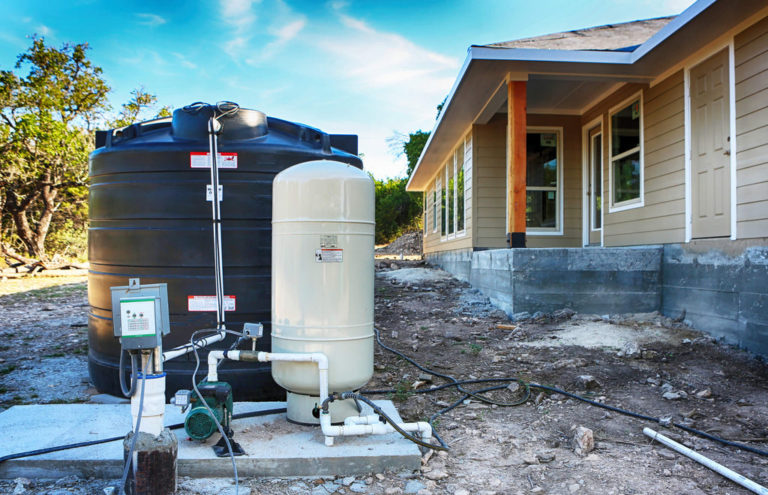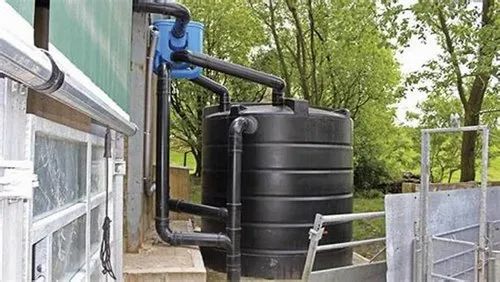As the world grapples with the growing problem of waste management, it has become increasingly clear that traditional methods are no longer sufficient.
In urban and rural areas alike, innovative off-grid waste solutions are being sought after to address the complex issues surrounding waste disposal.
From alternative energy sources to sustainable waste processing technologies, there is a need for cutting-edge ideas and practical applications that can effectively mitigate the environmental and health impacts of waste.
We will explore some of these innovative solutions, highlighting their benefits and potential for widespread adoption in various contexts.
By embracing forward-thinking approaches to waste management, communities and businesses can jointly work towards a more sustainable future.
Re-think waste as a resource
Instead of viewing waste as a problem to be disposed of, consider it as a resource that can be repurposed or transformed into something of value.
By adopting a transformative mindset, waste can be repurposed into something of value, not only reducing the need for virgin materials but also decreasing the carbon footprint associated with the extraction, processing, and transportation of new resources.
This mindset shift empowers individuals and organizations to think creatively and identify opportunities for closed-loop systems where waste is continually cycled back into the production process, reducing the amount of waste that ends up in landfills and minimizing the environmental impact of resource extraction.
With a little imagination and the right tools, what was once considered waste can be transformed into valuable products and resources, such as recycled materials, biofuels, and even new building materials.
By adopting this resourceful approach to waste management, individuals and organizations can not only reduce their environmental impact but also tap into a wealth of untapped resources, all while supporting a more circular and regenerative economy.
Embrace decentralized, community-based approaches
Decentralized, community-based waste management systems can be more resilient and effective than traditional, top-down models.
Community-based systems empower local residents to take ownership of their waste management, fostering a sense of responsibility and accountability.
This leads to higher participation rates and more consistent waste sorting, as individuals are more likely to adhere to the system if they feel invested in its success.
Decentralized systems are more adaptable to local contexts and needs, as they are designed and implemented by the community itself.
This leads to more targeted and effective waste management strategies, as the system is tailored to the specific needs and challenges of the area.
Furthermore, decentralized systems are often more cost-effective and sustainable, as they rely on local resources and waste streams, rather than relying on expensive, centralized infrastructure.
Overall, decentralized, community-based waste management systems offer a more resilient and effective approach to waste management, as they prioritize local ownership, adaptability, and sustainability.
Leverage technology
Innovative technologies such as anaerobic digesters, composting machines, and pyrolysis systems can transform waste into valuable products such as biofuels, organic fertilizers, and energy.
These cutting-edge technologies are capable of converting organic waste materials into a variety of valuable products, including biofuels, organic fertilizers, and even energy.
Anaerobic digesters, for example, use microorganisms to break down organic matter in the absence of oxygen, producing biogas that can be used as a renewable energy source.
This biogas can be further processed to produce high-quality biofuels, such as biomethane, which can be used to power vehicles and heat homes.
Composting machines, on the other hand, use heat and moisture to break down organic waste materials into a rich, nutrient-rich compost that can be used to improve soil health and fertility.
This compost can also be used as a natural fertilizer for crops, reducing the need for synthetic fertilizers and improving crop yields.
Pyrolysis systems, which use high temperatures to break down organic materials in the absence of oxygen, can produce a variety of valuable products, including biochar, syngas, and bio-oil.
These products can be used as soil amendments, energy sources, and even as a substitute for fossil fuels.
In addition to these products, these innovative technologies can also help reduce greenhouse gas emissions, decrease waste sent to landfills, and improve the overall sustainability of our communities.
By implementing these technologies, we can create a more circular economy and reduce our reliance on non-renewable resources.
Encourage circular economy practices
Implement circular economy practices such as waste reduction, reuse, and recycling to minimize waste generation and maximize resource utilization.
To reduce waste and increase resource efficiency, businesses can adopt circular economy practices such as waste reduction, reuse, and recycling.
Waste reduction involves minimizing the amount of waste generated during production processes and day-to-day operations.
This can be achieved through the use of sustainable materials, efficient manufacturing processes, and the implementation of waste prevention strategies.
Reuse involves finding alternative uses for products or materials that would otherwise be discarded, such as refurbishing or repurposing them.
Recycling involves the collection and processing of waste materials to convert them into new products, reducing the need for raw materials and the amount of waste sent to landfills.
By implementing these circular economy practices, businesses can not only reduce their environmental footprint but also benefit from cost savings, increased resource productivity, and new revenue streams through the sale of recycled materials.
Circular economy practices can help businesses to build a positive reputation and increase customer loyalty by demonstrating a commitment to sustainability.
Use locally available materials
Incorporate locally available materials into waste management systems to reduce transportation costs and carbon emissions.
Incorporating locally available materials into waste management systems can significantly reduce transportation costs and carbon emissions.
By using materials that are readily available in the area, the need for long-distance transportation is minimized, which in turn reduces the amount of energy required to move materials.
This can be achieved through the use of regional materials such as organic waste, recyclables, and other waste streams that can be repurposed or reused.
For instance, composting programs can be implemented to convert food waste and other organic materials into a nutrient-rich soil amendment, which can then be used in local gardens and green spaces.
Similarly, recyclable materials such as paper, plastic, and glass can be collected and processed locally, reducing the need for long-distance transportation and the associated emissions.
Moreover, the use of locally available materials can also create new economic opportunities for the community, such as jobs in waste management, recycling, and composting.
By incorporating locally available materials into waste management systems, communities can not only reduce their carbon footprint but also stimulate local economies and promote sustainable development.
Partner with local businesses and communities
Collaborate with local businesses and communities to create a network of waste management stakeholders and share resources, expertise, and costs.
By bringing together a network of waste management stakeholders, including local governments, businesses, and community organizations, you can share resources, expertise, and costs to create a more sustainable and efficient waste management system.
This can include sharing information on best practices, investing in joint education and outreach programs, and pooling resources to invest in new technologies and infrastructure.
By working together, you can reduce waste disposal costs, increase recycling and composting rates, and minimize the environmental impacts of waste management.
By involving local communities in the waste management process, you can increase awareness and education about waste reduction and recycling, and promote behavior change among residents and businesses.
This can help to create a more sustainable and resilient community, while also improving the local economy and job creation.
Incorporate ecosystem services
Incorporate ecosystem services such as green infrastructure, wetlands, and beaver-based solutions to treat and filter wastewater, reduce flood risks, and enhance biodiversity.
Incorporating ecosystem services such as green infrastructure, wetlands, and beaver-based solutions can provide effective treatment and filtration of wastewater, reducing the need for artificial treatment systems and minimizing the environmental impacts associated with these systems.
Green infrastructure, such as green roofs and rain gardens, can help to absorb and filter rainwater, reducing the amount of stormwater that enters the wastewater treatment system.
Wetlands, with their unique combination of vegetation, soil, and water, are highly effective at removing pollutants and pathogens from wastewater, and can also provide habitat for a diverse range of plant and animal species.
Beaver-based solutions, such as the use of beaver dams and ponds to filter and treat wastewater, can also be highly effective and have the added benefit of providing habitat for wildlife.
These ecosystem services can also help to reduce flood risks by slowing down the flow of water and allowing it to soak into the ground, and can enhance biodiversity by providing habitat for a variety of plant and animal species.
By incorporating these ecosystem services into wastewater treatment systems, we can create more sustainable, effective, and ecologically-friendly solutions for treating and filtering wastewater.
Support agroecological practices
Support agroecological practices such as permaculture, agroforestry, and regenerative agriculture to improve soil health, reduce chemical use, and increase food security.
These practices prioritize the use of locally adapted, diverse, and sustainable agricultural methods that work in harmony with nature.
By adopting these practices, farmers can improve soil structure, increase water retention, and promote biodiversity.
This, in turn, can lead to improved crop yields, reduced soil erosion, and enhanced ecosystem services.
These practices often rely on locally available resources and community-based knowledge, which can help to build resilient and self-sufficient food systems.
By supporting agroecological practices, governments, organizations, and individuals can contribute to a more sustainable and equitable food system.
Want More? Dive Deeper Here!
Hey there! If you’re the type who loves going down the rabbit hole of information (like we do), you’re in the right spot. We’ve pulled together some cool reads and resources that dive a bit deeper into the stuff we chat about on our site. Whether you’re just killing time or super into the topic, these picks might just be what you’re looking for. Happy reading!
- USF researchers develop off grid NEWgenerator to treat waste around globe
- (PDF) The Incomplete Guide to off-grid Waste Management | Arthur Michelet – Academia.edu
- Reinventing the Toilet – Duke Stories
- Fostering Sustainable and Inclusive Climate Solutions Through Digital Technologies – Digital Planet
- How Innovative Business Models Can Bring Cheap Energy to Poor Communities – Knowledge at Wharton






